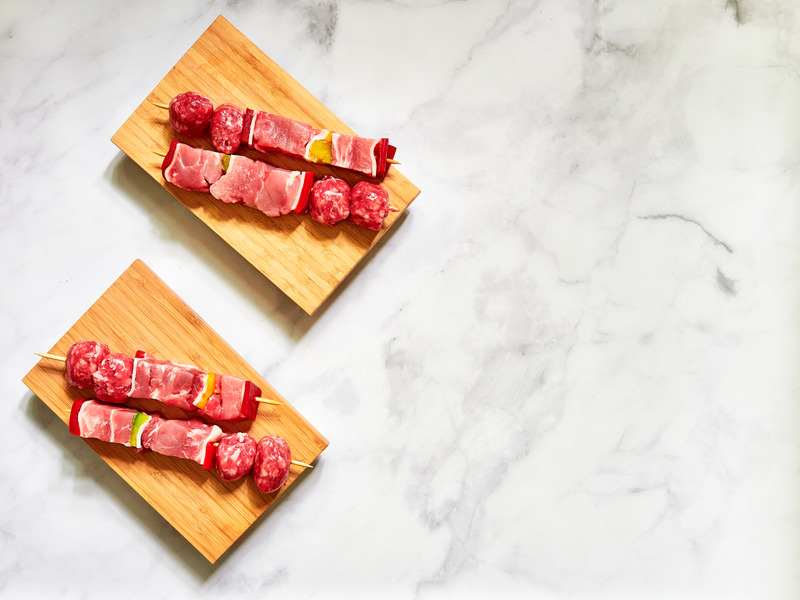
If your goals are to either build muscle or lose fat, it is a good idea to increase your protein intake. Protein is one of the three macronutrients (others being fats and carbohydrates). Our bodies use protein to build and repair tissues, make enzymes, hormones, and other chemicals in the body. It is also an important part of building bones, muscles, cartilage, skin, and blood.
Protein for Muscle Building
If your goal is to get the most out of your resistance training in building muscle and strength, you should make protein intake a top nutritional priority. In a review by Brad Shoenfield and Alan Aragon, they conclude that a daily protein intake of 1.6-2.2 grams of protein per kilogram of bodyweight is a range to aim for to maximize muscle building. That’s 0.72-1 gram per pound of bodyweight.
If you typically eat four meals each day, you would aim for each of those meals to contain 0.4g/kg/meal to reach the minimum of 1.6 g/kg/day. Using the upper daily intake of 2.2g/kg/day would mean that each of your four meals should contain 0.55 g/kg.
Sometimes hitting your protein target with just your meals can be difficult. You might find yourself needing to supplement with whey protein and that is normal and okay.
Protein for Fat Loss
Protein intake can help with fat loss, but you do not need to consume as much protein for fat loss as you would for muscle building. If your goal is to lose weight, your first priority is to make sure you are creating a consistent calorie deficit. This means you are eating fewer calories than you are expending. There is no one-size-fits-all diet that will ensure this happens for you. The best weight loss diet for you will be one that you can stick to over time in that calorie deficit.
Weight loss typically happens quickly at the beginning, but then most people will notice this process start to slow down. Your body will try to defend against the weight loss, because from an evolutionary standpoint losing weight is a threat. This is called adaptive thermogenesis. To break through this weight loss plateau, or metabolic slowdown, you will want to increase your metabolism. A higher protein diet can help accomplish this for a couple of reasons:
- In addition to resistance training, eating a higher protein diet will help increase muscle mass, which in turn will increase your basal metabolic rate. The higher your basal metabolic rate, the more calories you will burn over the course of 24 hours because muscle burns more calories than fat.
- Protein has a higher thermic effect than other macronutrients and the process of digesting protein requires more energy.
- Protein helps us feel full more so than carbohydrates and fats for fewer calories. So, if your diet is high-protein you will consume fewer calories while feeling fuller and chances are you won’t be thinking about food all day.
For fat loss purposes, you can aim for 0.7-1 gram of protein per pound of your goal weight.
References
Schoenfeld BJ, Aragon AA. How much protein can the body use in a single meal for muscle-building? Implications for daily protein distribution. J Int Soc Sports Nutr. (2018) 15:10. 10.1186/s12970-018-0215-1
[PubMed]
